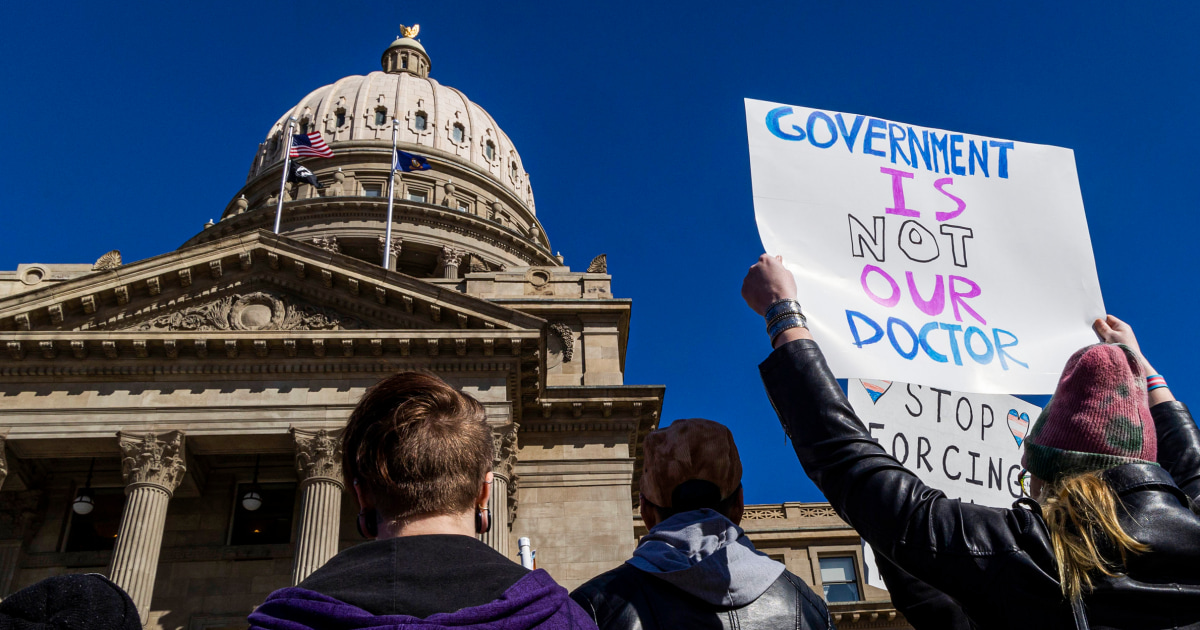
WASHINGTON — A divided Supreme Court on Monday allowed Idaho to mostly enforce a law that bans gender-affirming health care for transgender teens.
Granting an emergency request filed by Idaho officials, the court said the law enacted last year could go into effect statewide but cannot be applied against the two plaintiffs who challenged it.
The court’s three liberal justices objected to the decision, saying the law should have remained blocked in full.
U.S. District Court Judge Lynn Winmill ruled in December that the state could not enforce the law while litigation continues. The state has appealed to the San Francisco-based 9th U.S. Circuit Court of Appeals but it has yet to rule.
The law, like measures enacted by other states, prevents the use of what Winmill called “generally accepted medical treatment” for transgender minors, including puberty blockers, hormone therapy and surgeries.
Officials subsequently turned to the Supreme Court, which has a 6-3 conservative majority, saying the injunction was too broad and that the law should only be blocked for the two plaintiffs in the lawsuit.
Conservative Justice Neil Gorsuch, in an opinion explaining his vote to allow the law to be enforced, said the lower court had gone “much further” than needed in putting the entire law on hold. The Supreme Court’s intervention should be viewed as a “welcome development,” he said.
In a dissenting opinion, liberal Justice Ketanji Brown Jackson said the case “presents numerous reasons for exercising restraint” but instead, the court had decided to step in and was guilty of “micromanaging” the lower courts.
Lawyers for the plaintiffs, two transgender teenagers, said it was necessary that the judge blocked the entire law because if it went into effect it might imperil all gender-affirming healthcare in the state.
The plaintiffs, named in court papers only as Pam Poe and Jane Doe, say the law, called the Vulnerable Child Protection Act, among other things violates the Constitution’s 14th Amendment by discriminating on the basis of sex.
Poe is a 16-year-old transgender girl who has been prescribed puberty blockers. Doe is a 17-year-old transgender girl who was also prescribed puberty blockers and has begun hormone therapy.
Both say medical treatment has improved their mental health.
More than 20 states have enacted similar bans, according to the Movement Advancement Project, an LGBTQ rights think tank.
The Supreme Court will likely weigh in on the broader legal question in future as challenges to the laws make their way through the court system.
In the coming weeks, appeals concerning similar laws in Tennessee and Kentucky will be up for consideration by the justices.